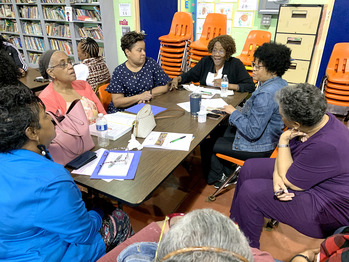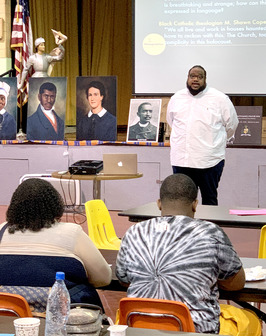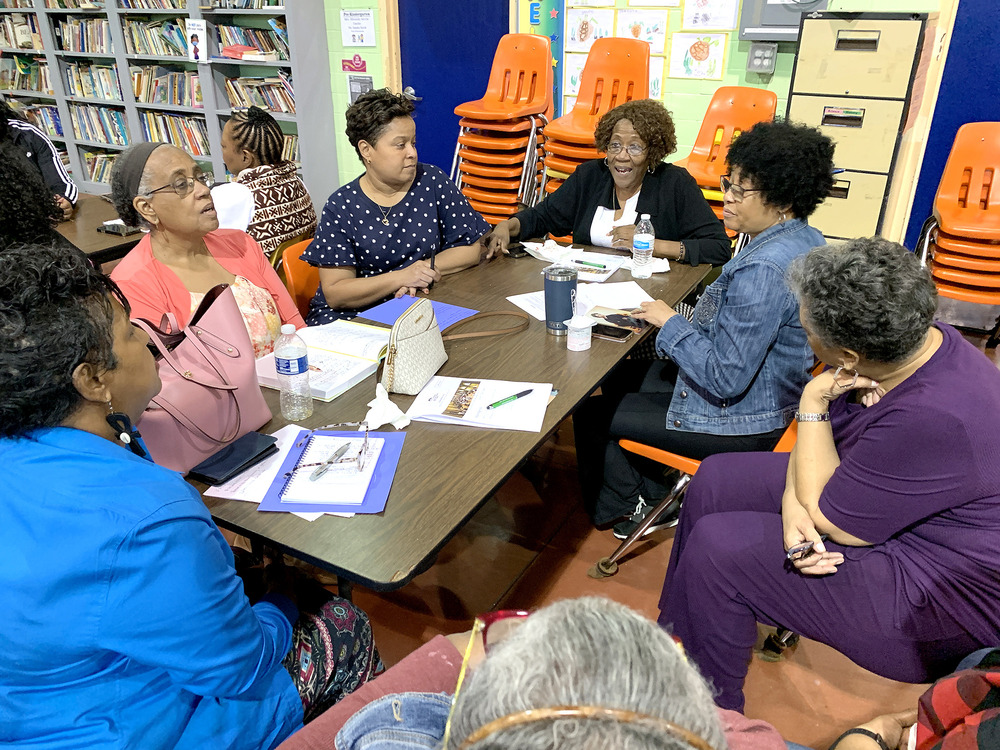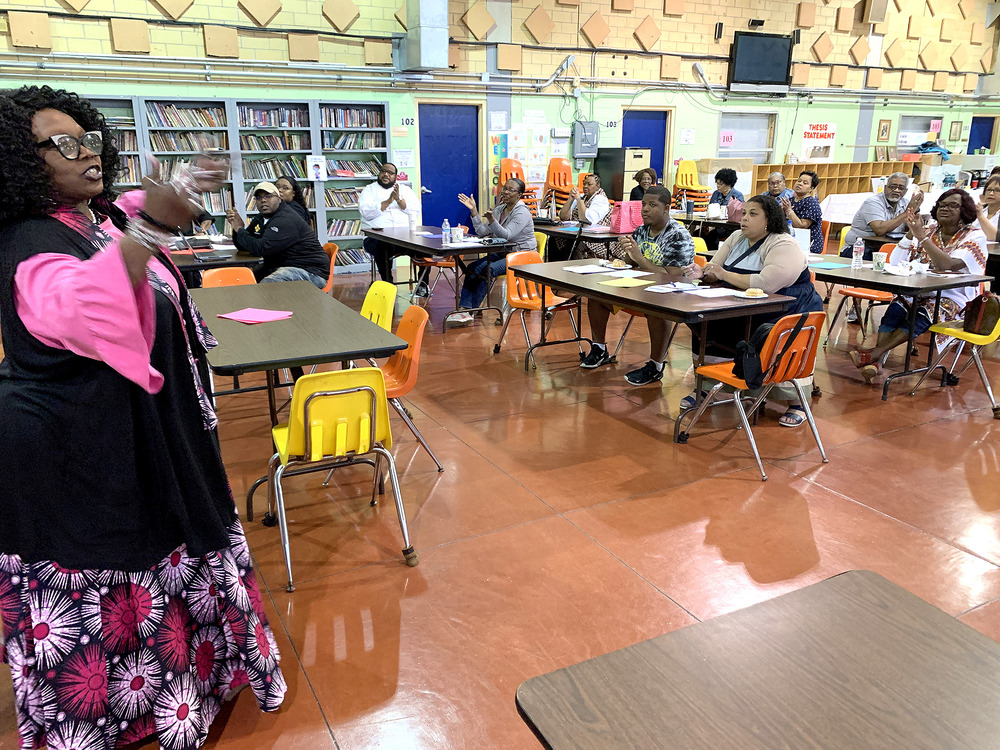
A platform that encourages healthy conversation, spiritual support, growth and fellowship

NOLACatholic Parenting Podcast
A natural progression of our weekly column in the Clarion Herald and blog

The best in Catholic news and inspiration - wherever you are!
Challenges for Black Catholics addressed by study
-

By Peter Finney Jr.
Clarion HeraldFor the next several months, the challenges facing Black Catholics across the country will be the primary focus of Dr. David W. Robinson-Morris, a New Orleans transplant, philanthropist, educator, human rights advocate and former assistant vice president of development at Xavier University of Louisiana.
Working in tandem with the nation’s premier Catholic philanthropic organization – Foundations and Donors Interested in Catholic Activities (FADICA) – Robinson is convening 20 town hall meetings with Black Catholics across the U.S. to search for common-ground initiatives that FADICA potentially could support with its financial resources.
 Robinson-Morris met April 22 for a “listening and dreaming session” with more than three dozen Black Catholics of the Archdiocese of New Orleans, all of whom will attend the National Black Catholic Congress in the Washington, D.C., area July 20-23.
Robinson-Morris met April 22 for a “listening and dreaming session” with more than three dozen Black Catholics of the Archdiocese of New Orleans, all of whom will attend the National Black Catholic Congress in the Washington, D.C., area July 20-23.
The New Orleans session was hosted by the archdiocesan Office of Black Catholic Ministries.FADICA’s anti-racism committee has established a three-part process for its study: a listening phase, a discerning phase and an action phase. The New Orleans gathering was the first in-person convening of a large group of Black Catholics as part of the study.
“This is the listening phase, where we gather all the data and get a clear understanding through a thematic analysis of what’s happening across the country,” Robinson-Morris said during a three-hour meeting at St. Joan of Arc Parish in New Orleans. “The next phase would be to work with (FADICA’s) anti-racism committee to determine the areas they think they can tackle and have the most impact.”
Robinson-Morris has done one-on-one interviews with Black Catholic leaders and administrators and plans to do listening sessions with youth, priests, the Knights of Peter Claver, the National Association of Black Catholic Administrators and a large group of Catholic school superintendents.
“I want them to practice some faith,” Robinson-Morris said. “The new-world term is called ‘manifesting,’ but it’s nothing but faith – seeing something that isn’t there but working toward it like it is. My goal is to stay out of their dreaming while setting the stage for what’s happening nationally, what’s happening through facts and figures and demographic data.”

One of the biggest needs Robinson-Morris said has bubbled up in his early consultations is for the establishment of a distinct office for Black Catholic ministries in more dioceses.“From the initial calls, I can tell you that one of the largest needs is funding for offices of Black Catholic ministries within diocesan offices,” he said. “The funding is not there – or there is (just) one person working in (the office).”
Robinson-Morris said having Black Catholics represented within the diocesan operational structure is critical.
“It’s important for people at the decision-making table to have a clear understanding of what (Black Catholics) are enduring within their parishes,” he said.
Moving beyond the diocesan structure, Robinson-Morris said there are also intense needs within Black Catholic parishes.
“I am talking to Black priests who are running parishes, and their questions are things like, ‘How do we deal with the infrastructure? How are we dealing with buildings and deferred maintenance?’” Robinson-Morris said.
As dioceses across the U.S. have begun to merge or close parishes and schools that are financially imperiled, questions also emerge about the equity of assessments that each parish pays to the diocese for overall diocesan administration.
“Some of the conversations are around assessments and how those assessments aren’t necessarily as equitable as they should be,” he said. “Parishes financially are suffering because they’re having to pay this assessment that they really don’t have the money to pay.
“This collective idea, this understanding that we’re in this together and that we are the church – all of us – and if one church is suffering, the whole church is suffering.”
Robinson-Morris said he hopes he can take advantage of the National Black Catholic Congress in July to do some “dreaming work” with a larger audience.
With the world coming out of the pandemic and social and economic tensions rising, Robinson-Morris said he has seen Black Catholics “lean heavily on their faith in these moments.”
“Even in the midst of despair, there’s this underlying joy and gratitude with Black Catholics that you see, because there’s prophetic hope,” he said. “We know a new day is coming. We haven’t seen it yet, but we know it’s coming. People are suffering from stress and all those old traumas have been brought back up. It’s how we deal with them in our unique way with faith and family and bringing community together to help soothe and empathize with one another in community.”

One participant in the dreaming session cited financial pressures that have put an end to diocesan funding for a parenting and mentoring program and also the reality that St. Leo the Great School will be the only Black Catholic school remaining in Orleans Parish.“Our dream is to have a church where we are visible and acknowledged,” one woman said.
Others mentioned declining church attendance and the difficulty of keeping youth and young adults invested in their Catholic faith, which has made mega churches and their fellowship and social activities enticing.
“They’re taking our students out of our church,” one said.
Another said the energy and enthusiasm created by the National Black Catholic Congress can’t be allowed to die after people return home.
“But the Eucharist is the center of our faith, and no one else can offer us the Eucharist,” another group reported. “For that, we will be Catholic for life.”




